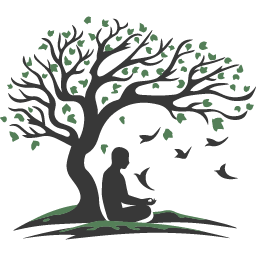Introduction
In our quest for inner peace, we often strive to avoid negativity, but what if this isn’t the most effective or authentic path? In “Unfolding the Lotus: A Compassionate Response to Life’s Challenges,” we will explore a different approach rooted in Zen Buddhism—embrace the world with an open heart, respond to difficulties with compassion, and transform adversity into growth.
This article will delve into the lotus metaphor—a symbol of purity and enlightenment emerging from suffering. We’ll discuss how we can apply this concept to our own lives, transforming challenges into opportunities for deep personal growth and peace.
Whether you’re a longtime Zen practitioner or just beginning your journey, this article offers a fresh perspective and practical steps to navigate life’s storms with grace and compassion. So let’s embark on this journey together, unfolding the lotus of compassion within us.
My Heart Blown Open
At the lowest point in my life, my instinct was to withdraw, to shield myself from the world. I felt an overwhelming desire to shut out anyone who seemed to pose a threat, anyone whose energy differed from my own. I felt alienated, detached from the world, and the more I closed my heart, the more I wanted to retreat into solitude. It seemed as though the world was happy to comply, turning its back on me simultaneously.
However, it wasn’t until much later that I discovered a profound truth. As I began opening my heart to others, extending a hand to those in need, I experienced an unexpected transformation. My heart, once guarded and fragile, now blossomed wide open. I found that when my heart was open, it was invulnerable to harm. In contrast, when it was closed and brittle, it needed constant protection.
Opening my heart was not a sign of weakness, but of strength. It was not an invitation for hurt, but a pathway to profound peace and resilience.
Understanding Compassion in Zen Buddhism
In Zen Buddhism, compassion – or “karuna” – is more than just a feeling of sympathy or a desire to help those in suffering. It’s a deep, intrinsic understanding that we are all interconnected, part of the same whole. Compassion in Zen is not merely about feeling for someone else, but rather it’s about experiencing with them, understanding their suffering as a part of our own.
This understanding often leads to a natural desire to alleviate not just our own suffering, but the suffering of others as well. It’s about recognizing that our individual wellbeing is intertwined with the wellbeing of all. In this sense, compassion is both an empathetic response and a call to action.
Compassion as a Path to Inner Peace
Inner peace, from a Zen Buddhist perspective, is not about the absence of conflict or suffering, but about the ability to remain peaceful and centered amidst whatever life presents. Compassion plays a crucial role in this process.
When we open our hearts to others, when we engage with their suffering instead of avoiding it, we begin to break down the barriers that separate us. This allows us to see ourselves in others and others in ourselves, fostering a deep sense of interconnectedness and unity. This unity, in turn, gives rise to a profound sense of peace.
Moreover, by cultivating compassion, we learn to approach all aspects of life – the positive, the negative, and everything in between – with a balanced, accepting mindset. We learn to navigate life’s storms not by avoiding them, but by moving through them with grace and understanding. This is how compassion becomes a vehicle for inner peace.
The Reality of Life’s Challenges
In our lives, we are inevitably confronted with difficult people and challenging situations. These might be individuals who irritate us, circumstances that frustrate us, or personal struggles that cause us pain. The common approach is to distance ourselves from these sources of negativity, to isolate ourselves in a bubble of positivity. But this approach has its limitations.
Avoidance can lead to a kind of denial, a refusal to acknowledge the full spectrum of human experience. Moreover, distancing ourselves from challenging people and situations might offer temporary relief, but it doesn’t necessarily lead to long-term peace or personal growth. In fact, it can sometimes leave us feeling more isolated and less equipped to deal with life’s inevitable difficulties.

“Compassion is the petal that allows the lotus of peace to bloom amidst life’s muddy waters”.
The Lotus Metaphor
In Buddhism, the lotus flower is a powerful symbol. It starts its life in the mud, yet rises through the water to bloom clean and bright above the surface. It’s a metaphor for our own potential to grow and transform amidst adversity.
When we apply the lotus metaphor to our own lives, we see that our struggles and difficulties aren’t just obstacles to our happiness. They are the very mud from which we can rise, the very material with which we can cultivate our growth and transformation.
By embracing the lotus metaphor, we realize that opening our hearts and responding to life’s challenges with compassion isn’t about denying the existence of difficulties. It’s about acknowledging these difficulties, facing them head-on, and using them as stepping stones on our path towards inner peace. We learn to see the mud not as a hindrance, but as a necessary component in our journey towards blooming into our fullest potential.
Compassion as a Path to Inner Peace
Through Zen Buddhism, we learn that compassion isn’t just a fleeting feeling, but a transformative process. By opening our hearts to others, we expand our perspective and deepen our understanding of the world and our place within it. This shift in perspective can profoundly impact our journey towards inner peace.
When we embrace compassion, we stop resisting the world and start flowing with it. We stop judging people for their flaws and start understanding them for their struggles. We become less reactive to life’s challenges and more responsive to its lessons. In essence, we transform our relationship with the world from one of conflict to one of harmony.
This harmony brings a deep sense of peace, a peace that remains unshaken even in the face of adversity. When we are compassionate, we are not just at peace when circumstances are favorable—we are at peace regardless of circumstances. We find an inner calm that remains steady amidst the storms of life.
Practical Steps to Cultivate Compassion
Cultivating compassion isn’t always easy, but it’s a journey that can be embarked upon with a few practical steps. Here are some Zen-inspired practices to get you started:
- Mindfulness: Being fully present and aware of our thoughts, feelings, and actions can help us recognize when we are closing off our hearts. It’s the first step towards choosing a more compassionate response.
- Meditation: Regular meditation can help quiet the mind and open the heart. Specific practices like loving-kindness meditation can be especially effective in cultivating compassion.
- Reflection: Reflect on the interdependence of all beings. Recognize the shared human experience in everyone you meet. This can foster empathy and compassion.
- Action: Look for opportunities in your daily life to practice compassion. It could be as simple as listening empathetically to a friend or helping a stranger in need.
Remember, compassion is a skill that needs to be practiced and nurtured. With time and patience, it becomes a natural response, a beacon that guides us towards inner peace.
Sharing Personal Experiences
My personal journey has been one of learning to embrace compassion in challenging circumstances. As someone living with severe paralysis, I require 24-hour care to assist with all facets of my daily life—from personal hygiene to meal preparation. This experience has taught me about the necessity of compassion, not just for others, but also for myself.
Each caregiver brings their own approach to tasks, which often differs from how I would do things myself. Initially, I struggled with this. I wanted things done my way, precisely how I would do them if I were able. But this insistence only brought frustration—for both myself and my carers.
Over time, I realized the need for balance, for a middle way. I learned to appreciate the efforts of my carers, to understand their unique approaches, and to communicate my needs in a respectful and considerate manner. I found that when I approached these situations with compassion, we could find a middle ground that respected both their methods and my preferences.
This experience was not just about finding a practical solution to a daily challenge. It was a lesson in compassion, a lesson in understanding, a lesson in finding peace amidst the storm. And it was a lesson that reminded me that even in difficult circumstances, our hearts can remain open, and we can navigate our way through with grace and understanding.
Conclusion
Through Zen Buddhism, we learn that compassion is more than an emotional response. It’s a transformative process, a pathway to inner peace. By opening our hearts and embracing compassion, we can navigate life’s storms with grace and understanding. We can find the middle way in challenging situations, balancing our needs with the needs of others.
No matter what we face in life—whether it’s daily challenges, difficult people, or personal struggles—we have the capacity to respond with compassion. We have the ability to unfold the lotus of compassion within us, to bloom amidst the mud of adversity, and to find peace within the storm.
So, I invite you to embark on this journey of unfolding the lotus. To cultivate compassion in your daily life. To open your heart to the world and, in doing so, discover the profound peace that lies within.
You've just read an article by Steven Webb — Guiding you through the most difficult times. Here is a link to my podcast Stillness in the Storms and Inner Peace Meditations.
I write to arm you with resilience and inner wisdom, helping you find calm in life’s chaos. Follow me Medium or on substack.

